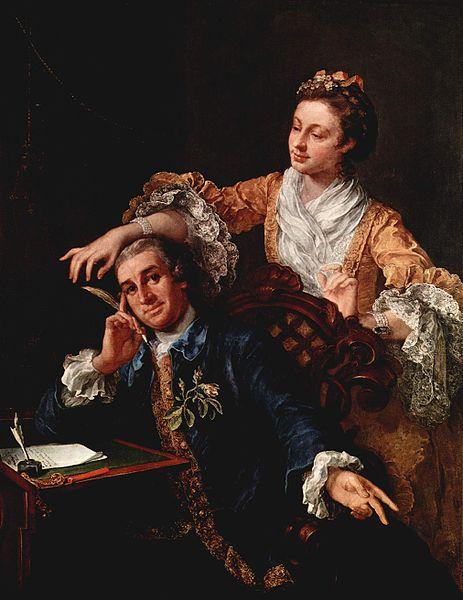
We humans often gravitate toward stories of lone heroes making their mark in this crazy world, but sometimes it’s better with two.
Brilliant (and volatile!) couples can spur each other to progress. (Just look at Franklin and Eleanor Roosevelt, Bill and Hillary Clinton, Pierre and Marie Curie, Frida Kahlo and Diego Rivera. It's hard to think of one's accomplishment without conjuring other.)
Less reknowned—but equally badass — is that Enlightenment powerhouse, Voltaire, who (you guessed it!) did some of his best work alongside lover and fellow intellectual, Émilie du Châtelet.
Voltaire—French philosopher, political critic, scientist, original brander of the one-word alias (eat that Madonna!)—had just returned from the science circuit in England, when he was introduced to 27-year-old Châtelet by mutual friends at a tavern. He was amazed to find kinship in her enthusiasm for science:
That lady whom I look upon as a great man . . . She understands Newton, she despises superstition and in short she makes me happy.
The two immediately struck up an intellectual and romantic relationship. She was married, but luckily for the lovers, Châtelet’s aristocratic husband was cool with his wife’s extramarital dalliances—a lax mentality reportedly common among French elite of the time (and debatably today). In fact he was so cool with it, Voltaire moved into Châtelet’s country estate.
Dang, that's progressive.
The pairing was dynamic, productive, and produced crucial Enlightenment writing on science and philosophy. With Châtelet’s assistance (both intellectual and material), Voltaire published writings that popularized his theories on planetary gravity, existence of atoms, light refraction and uses of telescopes. Châtelet translated Newton’s Mathematic Principia into French, complete with her own commentary on Newton’s calculations.
Successful as the relationship had been, though, the romance had an expiration date. Quel dommage!
In 1744, after nearly 15 years together, Châtelet was seduced by a poet 10 years her junior. Voltaire was initially enraged, but then remembered he was French and decided to accept the new romantic arrangement and maintain a friendship. The new union ended poorly for Châtelet, however. She promptly got pregnant via poet romantique—at age 43—and suffered complications during childbirth. She reportedly shouted,
It is you who has killed me!
at her young lover before giving up the ghost, surrounded by said accused killer, Voltaire and her ever-understanding husband.
Silver lining: Voltaire helped to publish her translation of Newton’s work, which remains the standard version used in France to this day.
Possible moral: If you're a brilliant and volatile innovator who pairs up with someone of like attributes, try to keep things amicable post-breakup. They might do you a heavy one day.
Image: Wikimedia Commons






